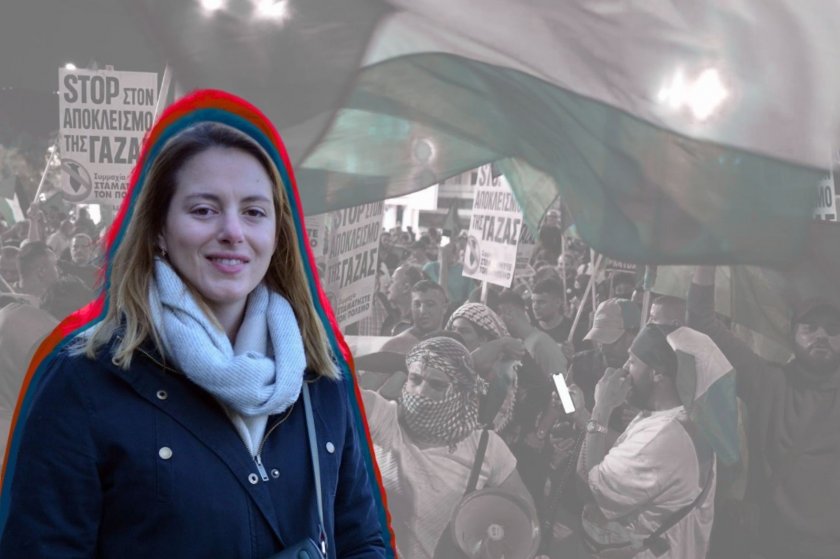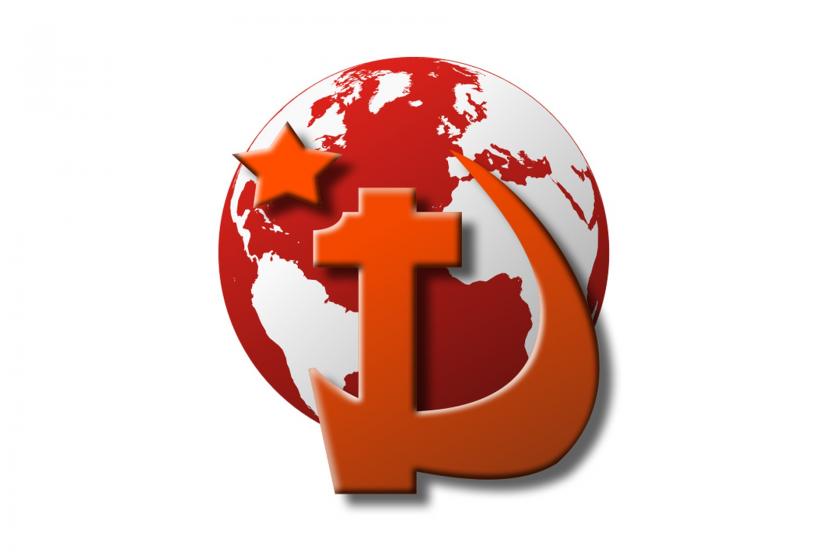The unstoppable fall of Ikhwanism!

Yusuf Karadaş

Tunus'ta Nahda Hareket'inin öğrenci kolları, 4'üncü Kongresine Nahda Hareketi lideri ve Tunus Meclis Başkanı Raşid el-Gannuşi de katıldı. (Fotoğraf:Yassine Gaidi/AA)
The Tunisian Assembly Speaker and leader of the Ennahdha (Renaissance) Movement Ghannouchi held a meeting closed to the press with President Erdoğan in Istanbul on 11 January. This “private” meeting of Ghannouchi with Erdoğan was criticised by many political circles in Tunisia because this meeting was held following the surprise visit that President Erdoğan made to Tunisia on 25 December and allegations that during this visit he requested of Tunisian President Kais Saied that he set up a military base to enable him to intervene in Libya. So, the ensuing criticism revolved around this meeting being a meeting based on Ennahdha’s and Erdoğan’s AKP’s partnership/collaboration along “Ikhwanist” (Muslim Brotherhood) lines rather than an official meeting.
How things have changed!
The time was when Ikhwanism was the hottest thing in the region (the Middle East)!
For instance, how Ghannouchi and the Tunisian Ennahdha of which he was the leader were eulogised for their similarities with the AKP following the demolition of the 23-year Ben Ali dictatorship!
Those were the days in which dreams were dreamed of Ikhwanists coming to power in Egypt and the other countries to which uprisings spread following Tunisia and the Erdoğan administration assuming leadership of them. But let us not sell the Erdoğan administration short: in the initial periods in which regimes were to be recast in a “moderate Islamist” mould on the back of the popular uprisings that started in 2010 and spread to many countries in the region in 2011, this was also the USA’s project. In fact, the AKP’s coming/being brought to power was in no small part thanks to the USA’s policy of making Turkey a model country for “moderate Islam.”
Speaking of Ghannouchi, let us start with the Ikhwanists’ initial adventure in Tunisia.
Ghannouchi returned to his country following the ousting of Ben Ali in Tunisia but his endeavour to become temporary president (coattail on the revolution) was prevented by the people. Even so, Ennahdha managed to become a government partner in the first elections held in 2011. However, Ennahdha passed into constant decline after that. Ennahdha managed to gain 89 seats in the 217-seat assembly in the 2013 elections and 69 in the 2014 elections. As to the most recent elections held in 2019, its share of the vote fell to 17.5% and the number of its seats to 52. On the other hand, Ennahdha’s candidate in the presidential elections, Abdelfattah Mourou, took a veritable drubbing and was only capable of garnering 12.9% of the vote against independent candidate Kais Saied, who took 72%. The failure of the Ennahdha-supported government created by Jemli to win a vote of confidence in the assembly following the elections came as the final testimony to Ennahdha’s collapse.
As to Ikhwan’s collapse in Egypt, this came about far more tragically!
It is common knowledge that Egypt was the country where the Muslim Brotherhood had its inception and was strongest.
The Ikhwanists initially steered clear of the demonstrations held in Tahrir Square against the Mubarek dictatorship. However, the “Freedom and Justice Party” the Ikhwanists set up following the ousting of Mubarek succeeded in winning the elections that were held. Subsequently, Ikhwan’s candidate Morsi won the presidential elections held in 2012 with fairly low turnout. Yet, speaking of Morsi becoming pharaoh-like, the people poured into the streets in the very first year of his presidency (June 2013) and Chief of the General Staff Sisi, sensing an opportunity, staged a coup and grabbed power.
The demonstrations that on the one hand erupted due to the failure to respond to popular expectations and the inability on the other to gain the trust of the USA and Israel over regional problems not least Palestine put paid to Ikhwan in Egypt, too, because the USA wished for regimes that were more easily reconcilable with Israel over the Palestinian problem and could be incorporated into the strategy of besieging Iran.
Saudi Arabia, the United Arab Emirates and Bahrain, perceiving the Ikhwan orientation to be a rival or even an enemy in terms of leadership of Sunni Islam, proclaimed the Muslim Brotherhood to be a terrorist organization in 2014. They placed such a tight squeeze on Qatar, which opened its arms to the Ikhwanists fleeing the coup in Egypt, that the Erdoğan administration took in these Ikhwanists. Moreover, pressurized by the Gulf countries, Qatar set out to develop relations and cooperation with the Erdoğan administration in Turkey and this cooperation went as far as Turkey setting up the Tariq bin Ziyad Military Base in Qatar in 2015.
Turning to Libya …
The Ikhwanists and radical Islamists are once more cooperating in the Government of National Accord (GNA) of Sarraj, one of the parties to the war in Libya and with whom the Erdoğan administration signed the economic and military cooperation agreement. Despite the Erdoğan administration having gained parliamentary approval for the use of military force in Libya and the sending of a portion of the jihadist militants in Idlib to Libya, Sarraj’s GNA is in a far from stellar position. Russian-backed Khalifa Haftar, who controls a large portion of the country, departed from Moscow, where he had sat down with Sarraj, without signing the ceasefire agreement. Seeing that the Sarraj government, which has surrendered the city of Sirte to the Haftar forces, is beyond military salvation, as in Syria, in Libya, too, Erdoğan has placed all his hopes in Putin. Putin, for sure, is exploiting this predicament of the Erdoğan administration to fortify his own policies.
One of the first flies in the Erdoğan administration’s ointment was the former Ikhwanist Tariq al-Hashimi in Iraq, the desire being, by supporting al-Hashimi, to have a say in the share-out struggle in Iraq. However, this adventure ended with al-Hashimi fleeing his country and taking refuge in Turkey.
Undoubtedly, the country in which the Erdoğan administration implemented its policy of bringing Ikhwanists to power and supporting Ikhwanist administrations most directly was Syria. The Syrian National Council (SNC) that the Ikhwanists formed was treated with reverence and held meetings at the most luxurious of hotels and its representatives hob-nobbed with functionaries in the Erdoğan administration. Thanks to this support, the SNC managed to become the most popular organization at the early stages of the war. It was even the largest organization within the “Coalition of Syrian Opposition and Revolutionary Forces” whose formation was spearheaded by the USA to unite the anti-regime forces. However, it was not long before armed radical elements came to hold sway in the war that had assumed a sectarian appearance. The Erdoğan administration of necessity moved into cooperation with radical Al-Qaeda derivative elements first with a view to overthrowing the Syrian regime and then to eliminating the Syrian Kurds’ attainments.
This in summary is the tale of yesterday’s hottest thing’s fall in the region.
However, for the Erdoğan administration, having started to lose popular support due on the one hand to division within his party and the formation of new parties and, on the other, in no small part due to the economic crisis, regional intervention and expansionism has become a matter of “survival.” Yet, the plight of the Ikhwanist and Islamist forces, the would-be foundation of this policy of intervention, not only renders the success of such a policy impossible but confronts the country with fresh threats and crises each time.
The heart of the matter is that brotherhood with the peoples of the region will emerge, not from Ikhwanism, but from a policy of peace based on respect for the will of the peoples under an antiimperialist and democratic-secularist orientation. The fall of the Ikhwanists at home and in the region furnishes the peoples day by day with greater opportunities to combine their strength and struggles to achieve such a policy.
Forwarding to the next article...
10 seconds remaining






Follow Evrensel